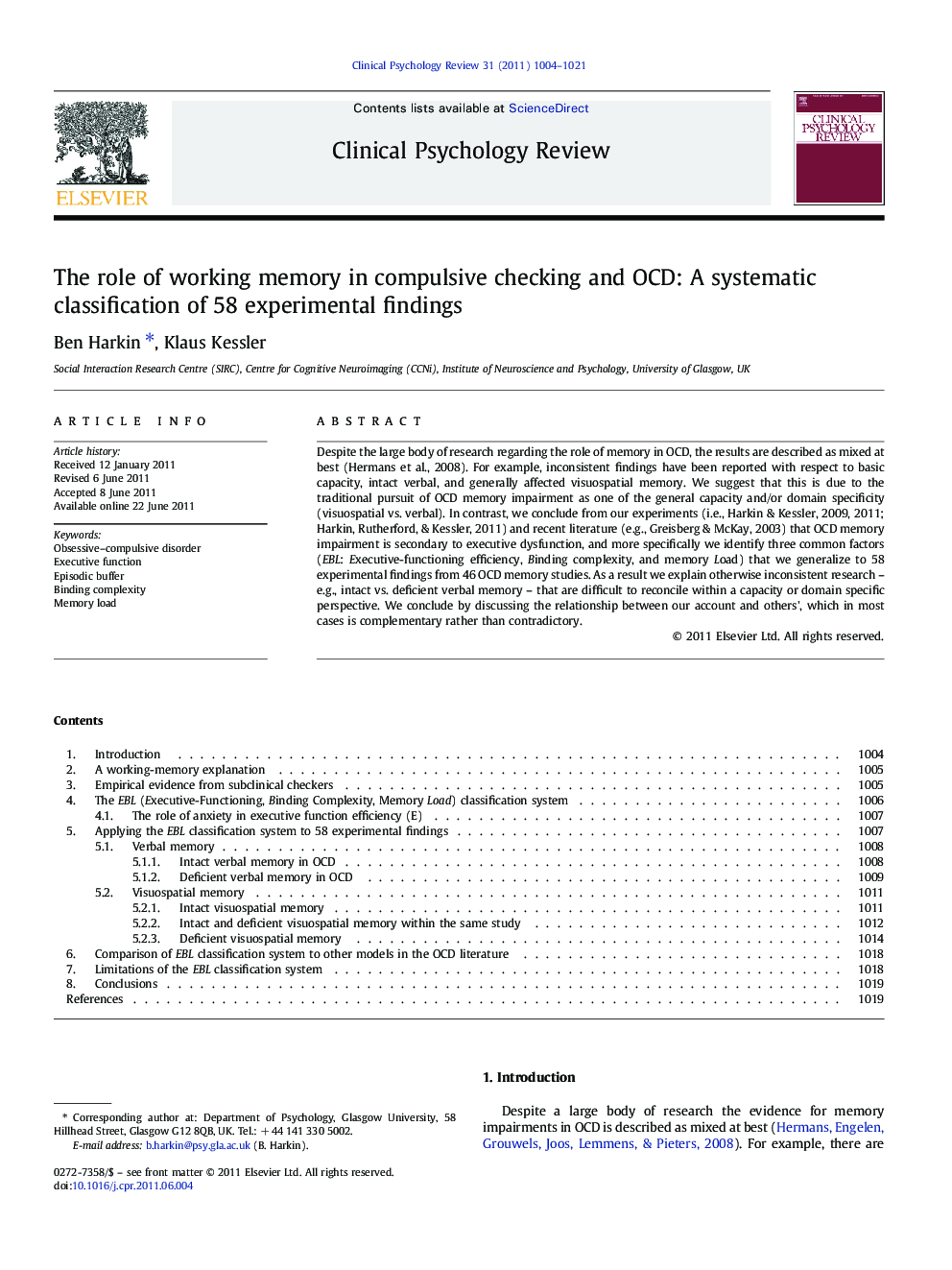| Article ID | Journal | Published Year | Pages | File Type |
|---|---|---|---|---|
| 903712 | Clinical Psychology Review | 2011 | 18 Pages |
Despite the large body of research regarding the role of memory in OCD, the results are described as mixed at best (Hermans et al., 2008). For example, inconsistent findings have been reported with respect to basic capacity, intact verbal, and generally affected visuospatial memory. We suggest that this is due to the traditional pursuit of OCD memory impairment as one of the general capacity and/or domain specificity (visuospatial vs. verbal). In contrast, we conclude from our experiments (i.e., Harkin & Kessler, 2009, 2011; Harkin, Rutherford, & Kessler, 2011) and recent literature (e.g., Greisberg & McKay, 2003) that OCD memory impairment is secondary to executive dysfunction, and more specifically we identify three common factors (EBL: Executive-functioning efficiency, Binding complexity, and memory Load) that we generalize to 58 experimental findings from 46 OCD memory studies. As a result we explain otherwise inconsistent research – e.g., intact vs. deficient verbal memory – that are difficult to reconcile within a capacity or domain specific perspective. We conclude by discussing the relationship between our account and others', which in most cases is complementary rather than contradictory.
► We provide a novel system to explain otherwise contradictory OCD memory research. ► We extend the recent executive basis of OCD memory impairment argument. ► This includes Executive-Functioning, Binding Complexity and Memory Load. ► Therefore, OCD memory impairment is not primarily an issue of capacity and/or domain. ► We then compare the EBL system to other models of memory impairment in OCD.
